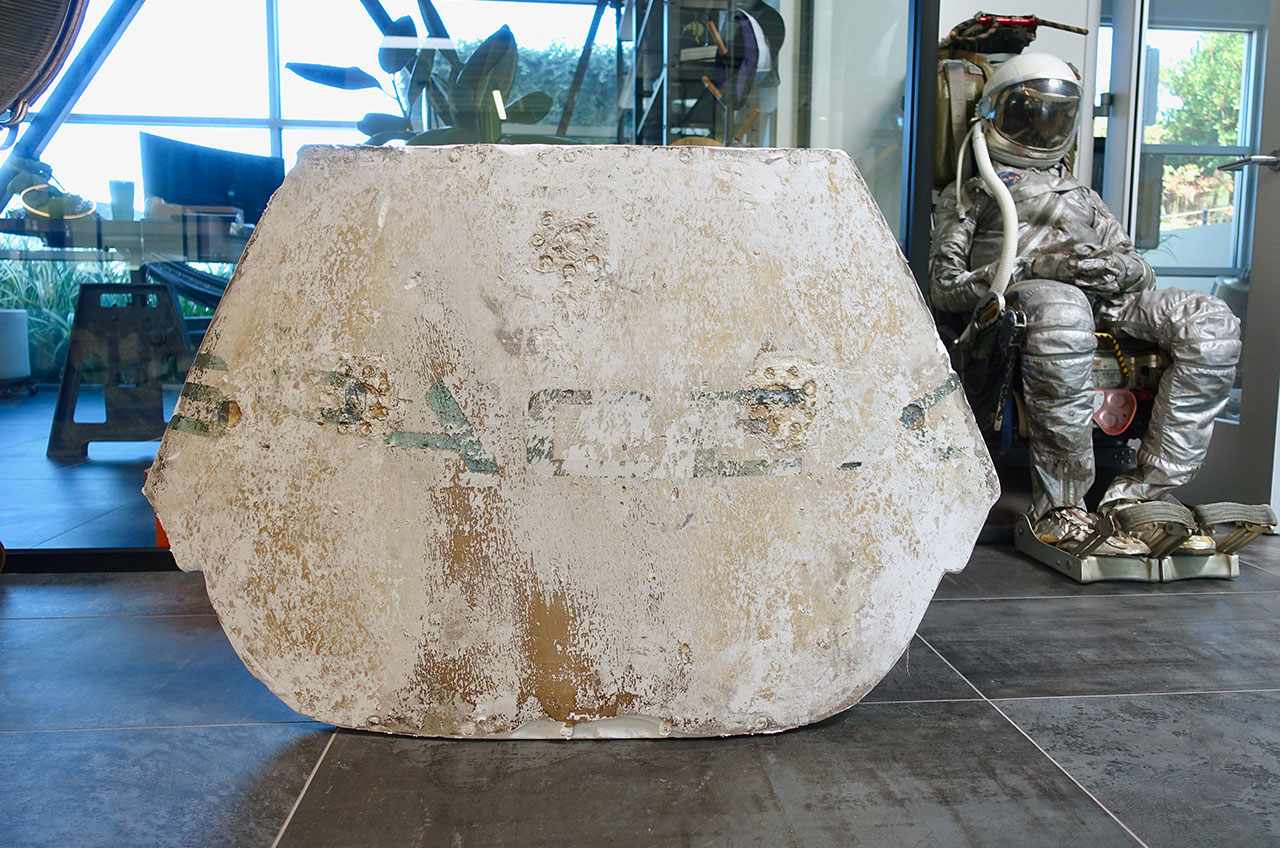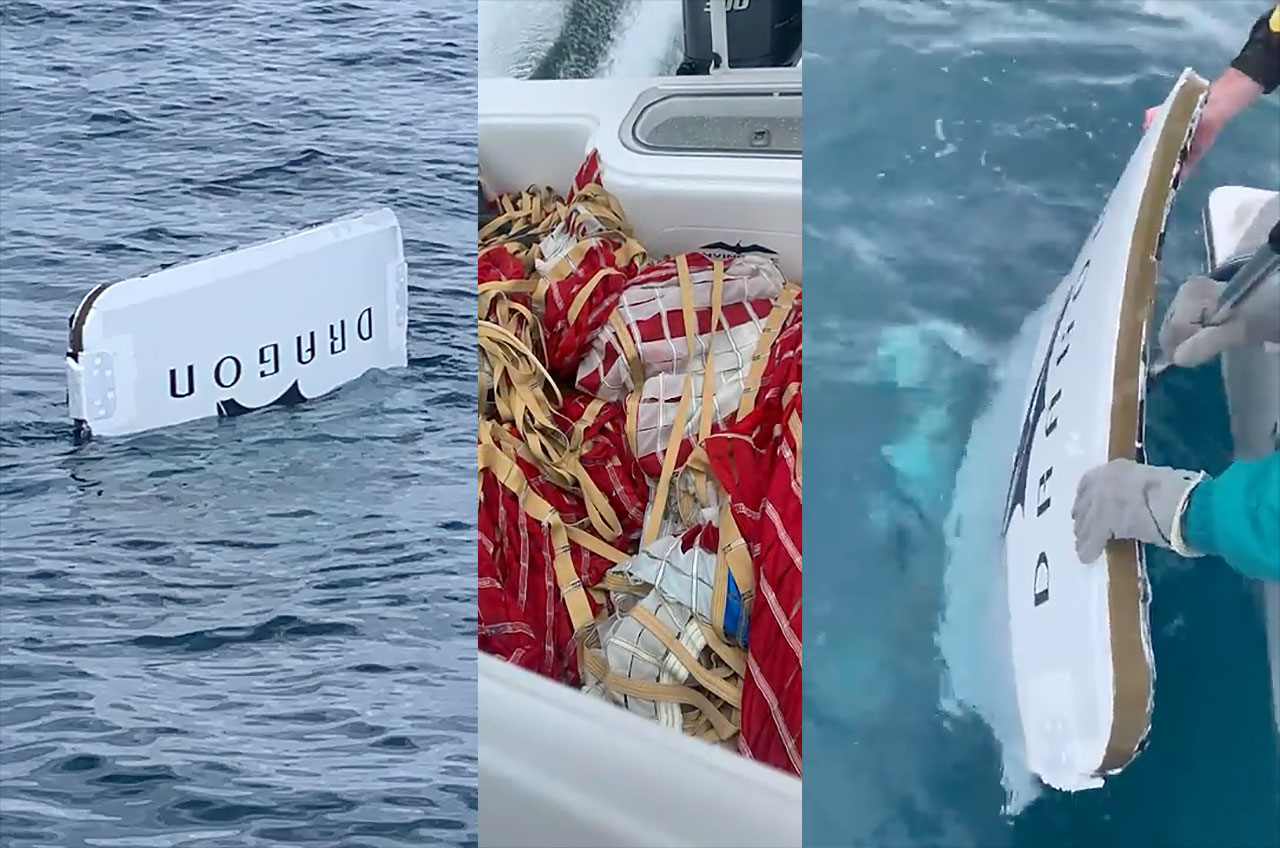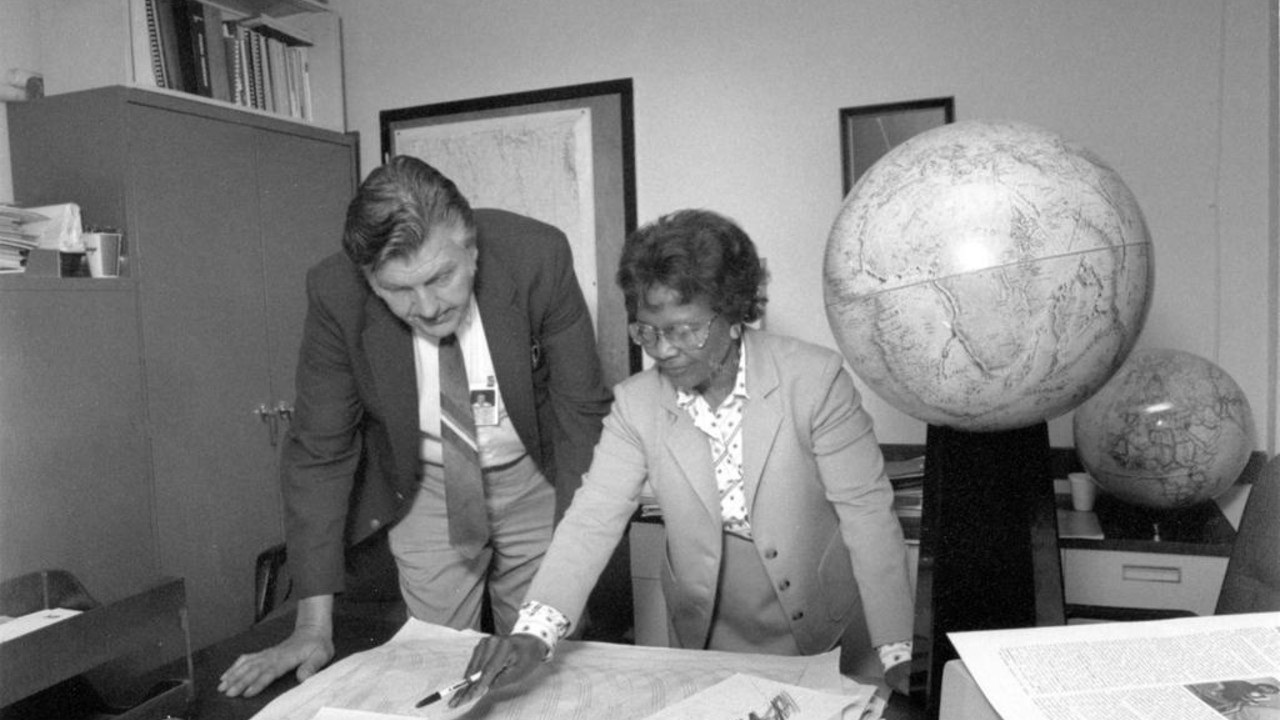Florida lawmakers protect spacecraft parts from finders, keepers
Finders is not keepers if you find SpaceX space junk.

On its way to a splashdown with four astronauts, SpaceX's Crew Dragon "Resilience" shed some of its parts.
Exterior panels were purposely jettisoned to expose and deploy the parachutes that lowered the capsule to a safe landing in the Gulf of Mexico, off the coast of Panama City, Florida, on Sunday (May 2). The doors, and the drogue chutes covered by one of them, dropped into the water separate from the Dragon while SpaceX focused on recovering the spacecraft and its crew.
Despite the possible appearance the panels were discarded, they remain SpaceX property, as affirmed by the Florida legislature. A bill enrolled on April 26 not only assigns penalties for keeping any found spacecraft parts, but requires all finds be reported to local authorities.
"The recovery of spaceflight debris is an increasingly common issue in Florida. The return of these materials is necessary to evaluate vehicle safety and performance," said State Representative Tyler Sirois, who authored the "Recovery of Spaceflight Assets" legislation.
Related: SpaceX rocket debris falls on farm in central Washington
The bill confirms that commercial spaceflight companies such as SpaceX, along with other entities involved in launching rockets and spacecraft, retain ownership of their hardware, even after the mission is over. It requires that anyone who finds "reasonably identifiable" spacecraft parts report them to local law enforcement and that the authorities then make a "reasonable effort" to notify the hardware's owner.
The legislation also allows the company (or other entity) to enter private property if needed to recover the parts.
Breaking space news, the latest updates on rocket launches, skywatching events and more!
Anyone failing to surrender found parts could be charged with "misappropriation of a spaceflight asset," a first-degree misdemeanor, which is punishable by up to a year in prison or a $1,000 fine. Violators could also be ordered to pay restitution to the owner if the hardware is damaged or cannot be recovered.
The bill, which had the support of SpaceX, is now awaiting the governor's signature. When enacted, the law will go into effect on July 1, 2021.
"As Florida continues to lead the nation in commercial aerospace, our laws need to evolve with the growing and unique demands of this industry," said Sirois.
Florida is the first state to pass legislation protecting spacecraft debris. Previously, the recovery of spacecraft parts fell under the terms of an international treaty or federal laws addressing the theft of government property, the latter applying if the vehicle belonged to NASA or the military.
The Outer Space Treaty, or the "Treaty on Principles Governing the Activities of States in the Exploration and Use of Outer Space, including the Moon and Other Celestial Bodies," entered into force in 1967. Among its provisions is that parties to the treaty — which includes the United States — retains ownership of its space vehicles "and of their component parts," regardless of where they are found ("in outer space or on a celestial body or by their return to the Earth").
The Outer Space Treaty has led in the past to the return of spaceflight hardware, including commercial rocket fairings, after they were found washed up on or near domestic and foreign shores.
Heads up! Chinese rocket debris crashes back to Earth after recent launch
SpaceX lobbied for the passage of the Florida "Spaceflight Assets" law after at least two incidents where Dragon parts were found in the possession of state residents. In January 2020, a group of fishermen off the coast of Daytona Beach came across two drogue chutes and their associated hatch from a SpaceX capsule that was used for an inflight abort test. Eight months later, a different fishing boat in the Gulf of Mexico recovered a panel from the first Crew Dragon to return astronauts from the International Space Station in August 2020.
In at least one of those cases, a panel ended up in the private space memorabilia collection belonging to a SpaceX investor.
The "Recovery of Spaceflight Assets" bill applies to more than just SpaceX or its panels and parachutes. The legislation addresses any "crewed and uncrewed capsules, launch vehicles, parachutes and other landing aids, and any ancillary equipment that was attached to the launch vehicle during launch, orbit, or reentry." Florida residents who locate the parts are instructed to "report the description and location of the spaceflight asset to a law enforcement agency having jurisdiction over the location."
Follow collectSPACE.com on Facebook and on Twitter at @collectSPACE. Copyright 2021 collectSPACE.com. All rights reserved.

Robert Pearlman is a space historian, journalist and the founder and editor of collectSPACE.com, a daily news publication and community devoted to space history with a particular focus on how and where space exploration intersects with pop culture. Pearlman is also a contributing writer for Space.com and co-author of "Space Stations: The Art, Science, and Reality of Working in Space” published by Smithsonian Books in 2018.
In 2009, he was inducted into the U.S. Space Camp Hall of Fame in Huntsville, Alabama. In 2021, he was honored by the American Astronautical Society with the Ordway Award for Sustained Excellence in Spaceflight History. In 2023, the National Space Club Florida Committee recognized Pearlman with the Kolcum News and Communications Award for excellence in telling the space story along the Space Coast and throughout the world.



